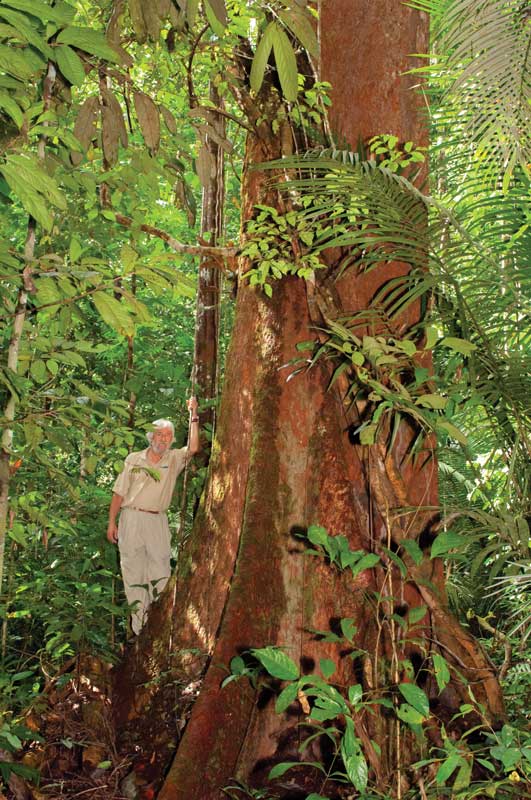Protecting Treasures Amongst Crisis
By Jean-Michel Cousteau and Holly Lohuis

In these times of uncertainties for what the future might bring, it is natural for us to feel a sense of hopelessness. We have watched and witnessed the entire world come to a complete standstill. But if I can share some stories of hope during these troubling times, I feel a sense of optimism as I see many news stories about animals reclaiming areas once overridden by people since we have been mandated to stay at home. We are witnessing the resiliency of nature—and wildlife is truly benefiting. The air is cleaner, in many urban areas wildlife is thriving again, more turtle hatchlings are surviving, and whales are migrating through quieter seas. This just might be the important reminder for us all; we are putting a tremendous amount of pressure on the natural systems that supports all life—including us. In just the past few months we have seen, when given a chance, nature has an amazing ability to recover.
Begin now
The lessons we’re learning from this global pandemic might be our best lesson yet to save the planet. But let’s not wait for another pandemic for conserving nature. It all starts with the connection between these infectious diseases and humans exploiting the last remaining wilderness areas left on our planet. The more we destroy wild places and bring animals, dead or alive, legal or illegally, into cramped, horrific conditions found at open wet markets and industrialized farms, the transmission of viruses will only happen again and again. The future is in our hands. Our own survival is directly dependent on a rich diverse world of species and ecosystems. When nature is sick, we are sick too.
There is no doubt the COVID-19 pandemic will have long lasting ramifications on society for years to come, maybe even decades. Questions still need to be answered. Will we be able to stop the next zoonotic pandemic from having even a greater impact, killing even more people around the world? Can humanity unite as one strong voice and eliminate unsustainable pillaging of the last remaining wilderness areas on the planet? This will not be the last pandemic that stifles humanity if we continue to ignore the links between infectious diseases and the destruction of the natural world.
If ever there was a time for leaders around the world to make a strong stand in favour of protecting wilderness areas that are still rich in biodiversity and supporting the indigenous people to continue as the caretakers of their lands; then now is that time. And there is one specific place that needs this sort of urgent global attention: the Amazon.
Since I first visited the Amazon in the early 1980s, this magical place of unimaginable biodiversity of flora, fauna, and indigenous people has held an important place in my heart. But much has threatened this special part of the world in the last 37 years, with the encroachment of modern society and our insatiable appetite for harvesting raw materials from nature in an unsustainable fashion. Those most impacted by this type of unsustainable harvesting are those who are the most knowledgeable about the intricacies of their forested lands, the indigenous people of the Amazon. And today they just might be the most vulnerable, exposed to the rampant spread of a virus that originated thousands of miles away.
For some of us in the western world, our governments have given us strict guidelines on what to do to minimize the spread of coronavirus. These include social distancing, avoiding public places and to simply stay at home. For the indigenous people of the Amazon, the rainforest is their home and they need people to stay away if they are going to survive what has now been the worst pandemic of the past 100 years. Yet in these areas, government has not supported measures that would ensure their protection from the virus.
For a species to flourish within nature, we have come to learn and appreciate the importance of preserving biodiversity, the web of life that supports us all. But this means we not only protect plants, animals, and wild places but also the cultural heritage of those who have lived in these remote wilderness areas for centuries.
United voice
We have moved into a very harmful and greedy period of human history where we are destroying the environment at an unprecedented rate and putting economic growth ahead of environmental protection. We have the knowledge, the resources, and the power to ensure the protection of the ‘exclusive use’ of indigenous lands in order to protect them from invasion by illegal miners, loggers, and land grabbers. It takes pressure from those who appreciate the biological and cultural significance of the Amazon; may we all come together as a loud collective voice, putting pressure on global leaders to protect the Amazon and its indigenous caretakers.
I am forever committed to the protection of our water planet. I have had the privilege of leading my team on numerous expeditions to the remote corners of the Amazon, documenting both the stories of environmental successes as well shedding light on the plight of the indigenous people who continue to be disregarded by their governments. We stand with the indigenous peoples of the Amazon, who are fighting to safeguard their people and their lands from those who are entering Indigenous land illegally with total disregard for human life. These actions could lead to the spread of COVID-19 to the most vulnerable on this planet. We cannot stand by and let this happen.
Diversity of the human species is essential, much like it is with plants and animals. However, unlike them we have the privilege of deciding not to disappear. We need to do everything to ensure that the indigenous people of the Amazon are protected.
For more visit: https://www.oceanfutures.org
Leave a Comment







